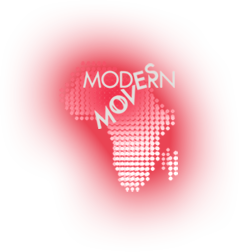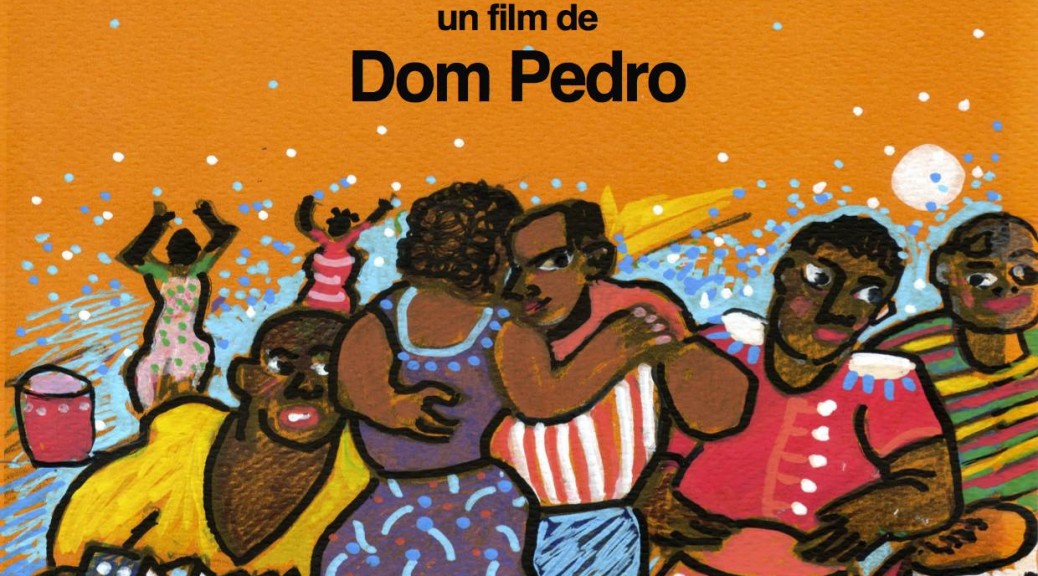Modern Moves: Kinetic Transnationalism and Afro-Diasporic Rhythm Cultures is a five-year research project (June 2013 – May 2018), funded by a European Research Council Advanced Grant, and located at the Department of English, King’s College London.
What is it about African-derived rhythms that inspire people to dance? From at least New York’s Jazz Age onwards, people have enjoyed themselves socially by moving in partner-hold to dances such as the Lindy Hop, the Charleston, and the Shimmy; in other parts of the Americas, people were moving to Cuban Son, Merengue, Tango, Maxixe, and syncopated forms of the Mazurka and Biguine. During the twentieth century, new partner dances evolved such as the Mambo, Salsa, Forro, Kompa, and Zouk.
Side by side, solo dances such as hip-hop, breakdancing, Vogueing, Reggaeton, Jitting, and Juking have emerged and flourished, often competing with the popularity of couple dances. Increasingly, dances from continental Africa, such as kizomba, semba and kuduro dialogue with these forms on transnational dancefloors. In gyms, people dance to zumba, which scrambles rhythms and movements from all these dance styles.
These dance forms have crystallized through interaction with specific genres of music and modes of self-presentation. Style, dance and music come together with technological developments in recording, amplification and mixing and the memory of older communal forms of rhythmic expression- such as carnival. Together, these ingredients create ‘rhythm cultures’ that shape the way people present themselves as modern subjects.
These rhythm cultures share a fundamental paradox: at the heart of their exhilarating energies lie their traumatic origins in the colonization of Africa and the forced displacement of African peoples and their enslavement throughout the Americas and the Caribbean. Despite this dark history, these dances have become synonymous with the kinetic and pleasurable dimensions of urban modernity.
Guided by this paradox, Modern Moves studies the evolution of these dances in their move from plantations to cities worldwide, and tracks their transnational developments, to break new ground in our understanding of modernity’s deep relationship to kinetic traces of ‘Africa’.
The Modern Moves team investigates modernity, postcolonialism, and post-trauma by examining the global popularity of African-derived dance practices. We are deeply interested in the continuous return and cross-pollination of rhythm cultures across the Black Atlantic; in excavating submerged rhythm stories connecting the Atlantic and Indian Ocean worlds; and in following these rhythms in their journeys across diverse language worlds shaped by former European Empires.
We reveal Afro-diasporic rhythms as the kinetic webs connecting Francophone, Lusophone, Anglophone, and Hispanophone worlds. We cross several Creole worlds, from Cabo Verde to Mauritius to the Dutch Caribbean, to the nightclubs of post-industrial cities worldwide.
The multi-lingual and inter-disciplinary research team dances several African and Afro-diasporic dance styles, and networks with Djs, musicians, dancers and artists to evolve vibrant and paradigm-shifting methodologies. Through these dances, we rethink exhilaration, flamboyance, performativity, and the temporalities and desires of capitalism and socialism.
Above all, in the energy, heat and exhilaration of the dance floor, in the unpredictable relationship between dance and desire, in the ability of dance to both highlight and dissolve racialised identities, in the mutual dependency of sweat and swag, we seek our academic inspiration!
On this website you will find out more about us- who we are, how we conduct our research, the challenges we face, the friends we hang out with, both on and off the dance floor, the travels that the rhythms take us on, what we enjoy listening to and moving to, and why.
Follow us as we move through the Afro-kinetic world!


